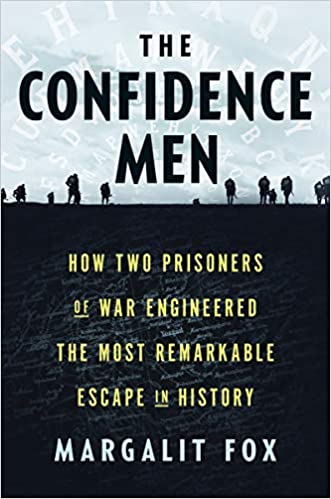Surprising things that were learned from the book were how well high level British officers were treated by their captors, with mid-level officers having somewhat lesser treatment and general soldiers being treated much worse. The officers even received regular payments from the Ottomans, possibly provided by the British government.
Francis and I both thought that the book was too long. The actual story was greatly extended by long stretches talking about the history of Ouija boards and other mysticism, plus discussions of psychological treatments.
That said, the group agreed that the author put in a fantastic amount of research in order to write the book. We all liked the book and thought that it was worth reading.
An interesting point in the book is that some of the prisoner of war camps were set up in empty Armenian villages, the villages being empty because all of the residents had been driven out and probably killed. The prisoners lived in some very nice houses. It being an Armenian village led to a key point of the story, in that the prisoners convinced the head of the prison camp to believe that they could lead him to where some Armenian gold was buried.
Another point that we discussed was the very poor performance of the top British officers which led to several thousand British soldiers having to surrender to the Ottomans in what is now Iraq. Also, the move of the captured British soldiers from the eastern Anatolian plateau to the west was done by a combination of walking, ox carts and railroad cars because the railroad that was being built by the Germans was only partially complete.
That is where our discussion ended. The book for next month is "Tadem, My Father's Village: Extinguished during the 1915 Armenian Genocide" by Robert Aram Kaloosdian. We will meet on Thursday, June 15th. The book is not readily available in libraries, but enough of us have gotten copies that I think that we'll have a nice discussion.
I hope to see you all there.
Leroy
ACOM Book Club for May 2023
 The ACOM Book Club met at Mim's on Thursday, May 18, 2023. Attendees were Jim, Margaret, Tom, Francis, Andrea, Lowell, Tashina and me. The book for this month was "The Confidence Men" by Margalit Fox.
The ACOM Book Club met at Mim's on Thursday, May 18, 2023. Attendees were Jim, Margaret, Tom, Francis, Andrea, Lowell, Tashina and me. The book for this month was "The Confidence Men" by Margalit Fox.
This book is about two British army prisoners of war in World War I who were captured by the Ottoman army. It tells a very interesting story of how they used Ouija boards, seances and magic tricks to 'escape', although the final escape wasn't until just a few months before the end of the war. The book is based on a true story.